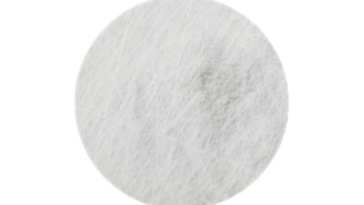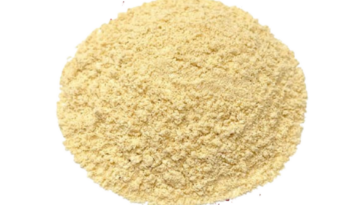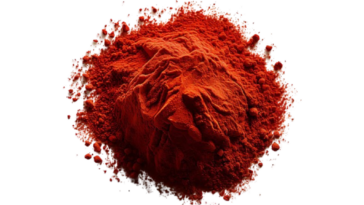Lactobacillus acidophilus, often abbreviated as L. acidophilus, is a species of bacteria that plays a crucial role in human health, particularly in the digestive system. Its origins trace back to the late 19th century when the Austrian scientist, Ernst Moro, first isolated it from the feces of breast-fed infants. Moro observed that breast-fed infants tended to have healthier digestive systems compared to formula-fed infants and theorized that certain bacteria might be responsible for this difference. L. acidophilus was one of the bacteria he identified as being abundant in the feces of breast-fed infants, leading to its initial discovery and study.
Further research in the early to mid-20th century expanded our understanding of L. acidophilus and its benefits. Scientists found that it thrived in the acidic environment of the human gastrointestinal tract, particularly the intestines, where it helps maintain a balanced microbial community by inhibiting the growth of harmful bacteria. Its ability to produce lactic acid contributes to the acidity of the gut environment, creating conditions unfavorable for pathogens. Additionally, L. acidophilus aids in the digestion and absorption of nutrients, supports immune function, and may even have anti-inflammatory properties. These discoveries have led to the widespread use of L. acidophilus as a probiotic supplement to promote digestive health and overall well-being.
Vitamins & Minerals:
Lactobacillus acidophilus, a probiotic bacterium commonly found in yogurt and other fermented foods, doesn’t inherently contain vitamins or minerals in significant amounts. However, its presence in the gut can indirectly influence the absorption and synthesis of certain vitamins and minerals by promoting a healthy balance of gut flora. This balance is crucial for efficient digestion and nutrient absorption. L. acidophilus contributes to the breakdown of food particles, facilitating the release of vitamins and minerals bound within them, thus aiding in their absorption. Additionally, by colonizing the gut lining, L. acidophilus helps prevent the growth of harmful bacteria that may interfere with nutrient absorption.
One notable role of L. acidophilus is its involvement in the synthesis of certain B vitamins, particularly folate and vitamin B12. These vitamins play essential roles in various bodily functions, including DNA synthesis, red blood cell formation, and nerve function. Through its metabolic activities in the gut, L. acidophilus contributes to the production of these vitamins, ensuring adequate levels for overall health. Moreover, L. acidophilus supports mineral absorption by maintaining a healthy gut environment. By producing enzymes that break down complex carbohydrates, it helps release minerals such as magnesium, calcium, and zinc from food for absorption into the bloodstream. This process promotes optimal mineral balance in the body, supporting bone health, immune function, and other vital physiological processes.
Probiotic, Prebiotic, or Postbiotic:
Lactobacillus acidophilus can primarily function as a probiotic. Probiotics are live microorganisms that, when administered in adequate amounts, confer a health benefit on the host. L. acidophilus is one of the most well-known and commonly used probiotic bacteria. It’s naturally found in the human gut and plays a key role in maintaining gut health by promoting a balanced intestinal microbiota.
Additionally, L. acidophilus can indirectly support the growth of other beneficial bacteria in the gut, acting as a prebiotic. Prebiotics are non-digestible substances that serve as food for probiotics and other beneficial bacteria in the gut. L. acidophilus can ferment certain carbohydrates and produce short-chain fatty acids, creating an environment that favors the growth of beneficial bacteria.
As for postbiotics, these are the metabolic byproducts of probiotics that have bioactive properties and contribute to health. While L. acidophilus itself primarily functions as a probiotic, its metabolic byproducts, such as lactic acid, bacteriocins, and other bioactive compounds, may exhibit postbiotic effects by modulating immune function, promoting gut barrier integrity, and exerting antimicrobial activity.
In summary, Lactobacillus acidophilus primarily acts as a probiotic, but it can also indirectly function as a prebiotic by promoting the growth of other beneficial bacteria, and its metabolic byproducts may have postbiotic effects on host health.
Dietary & Health Information:
Lactobacillus acidophilus is a type of bacteria found in your intestines, particularly in the colon. It’s considered a “probiotic,” which means it’s beneficial for your health, especially for your digestive system. Here’s some dietary and health information regarding L. acidophilus:
- Natural Sources: L. acidophilus occurs naturally in some fermented foods, such as yogurt, kefir, sauerkraut, and certain types of cheese. These foods can be good dietary sources of this probiotic.
- Supplements: L. acidophilus is also available in supplement form, commonly as capsules, tablets, or powders. These supplements often contain a concentrated dose of the bacteria, which can be useful for those who want to ensure they’re getting enough of it.
- Health Benefits: L. acidophilus is believed to offer several health benefits, particularly in relation to digestive health. It helps maintain the balance of beneficial bacteria in your gut, which is crucial for proper digestion and immune function. Some research also suggests that L. acidophilus may help alleviate symptoms of conditions like irritable bowel syndrome (IBS), diarrhea, and lactose intolerance.
- Maximum Daily Intake: While L. acidophilus is generally considered safe for most people, there isn’t a specific maximum intake established. However, like with any supplement, it’s best to follow the recommended dosage on the product label or consult with a healthcare professional for personalized advice. Too much of any supplement can potentially upset the balance of bacteria in your gut, leading to digestive issues.
- Side Effects: In most cases, L. acidophilus is well-tolerated. However, some people may experience mild side effects such as gas or bloating when they first start taking it. These symptoms usually subside as your body adjusts to the supplement.
- Storage and Handling: Proper storage and handling of L. acidophilus supplements are important to maintain their effectiveness. Store them according to the instructions on the label, typically in a cool, dry place away from direct sunlight. Follow any specific storage instructions provided by the manufacturer.
- Precautions: While L. acidophilus is generally safe, certain individuals, such as those with weakened immune systems or serious underlying health conditions, should consult with a healthcare professional before taking probiotic supplements.
Overall, incorporating L. acidophilus into your diet, either through food sources or supplements, can be a beneficial way to support your digestive health. Just remember to follow recommended dosages and consult with a healthcare professional if you have any concerns or specific health conditions.
Scientific Study:
National Institutes of Health (NIH) L. Acidophilus Research →




 No products in the cart.
No products in the cart.